D-Day Tips and Tricks: GMAT | How to prepare for GMAT PDF Download
Preparing for the GMAT doesn't end with studying. What you do on the day of the exam plays a crucial role in your performance. This guide will walk you through everything you should keep in mind—from morning rituals to break-time strategies—so you walk into the test centre cool, calm, and confident.
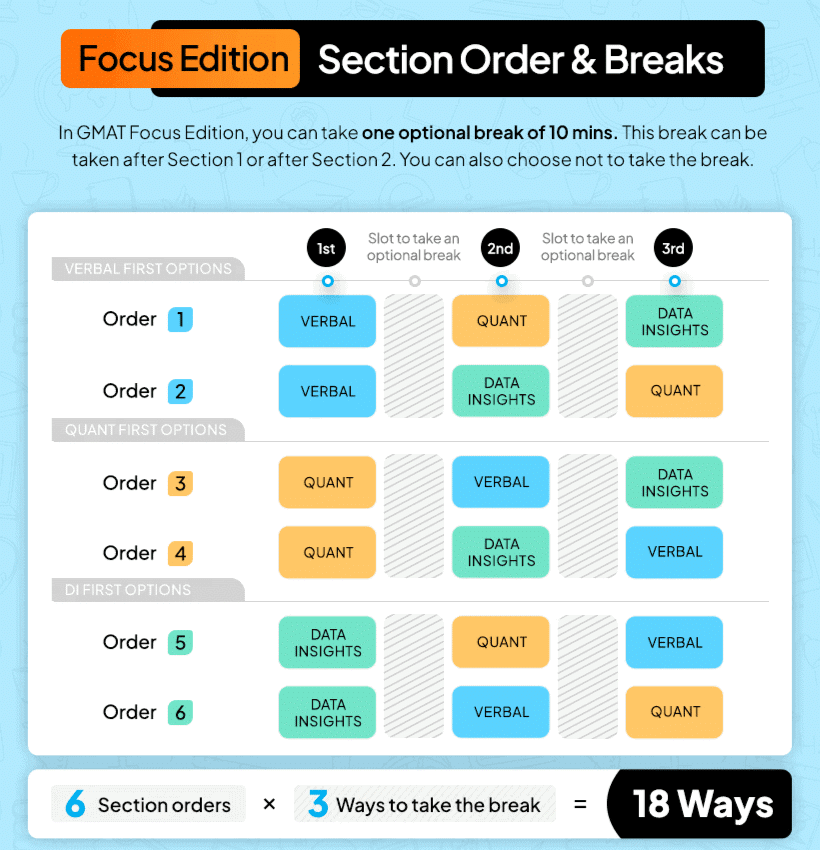
Key Takeaways to Get Ready for the Exam
Your preparation might be top-notch, but if you’re not mentally and physically ready on the test day, it could cost you valuable points. Here are some essential habits and tips to start your day right and stay composed before the test begins.
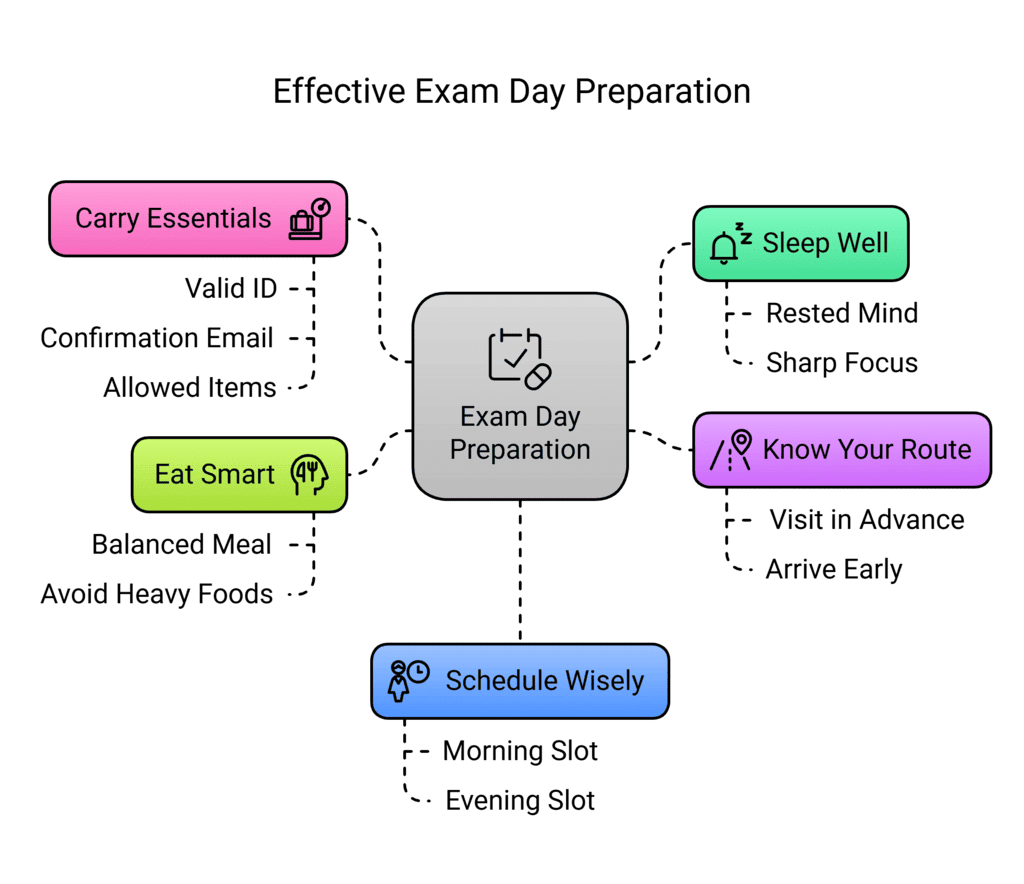
Sleep Well: A good night’s sleep is non-negotiable. Whether your exam is in the morning or evening, be well-rested to stay sharp and alert.
Know Your Route: Visit the test centre location in advance (if possible). Aim to reach at least 30 minutes early to complete the check-in process without stress.
Eat Smart: Don't skip your meal. Eat a light, balanced meal with a mix of protein and carbs. Avoid greasy, sugary, or heavy foods.
Schedule Wisely: Book your slot based on your natural rhythm.
Morning slot = Best for early risers
Evening slot = Best for night owls
Carry Essentials: Bring your valid ID, confirmation email, and any items allowed (e.g., water, snacks for breaks, prescribed medicines, etc.).
Should You Study on the Test Day or the Day Before?
One of the most common mistakes candidates make is trying to cram last-minute information just before the exam. This often does more harm than good. Instead, give your brain the space it needs to stay focused and alert.
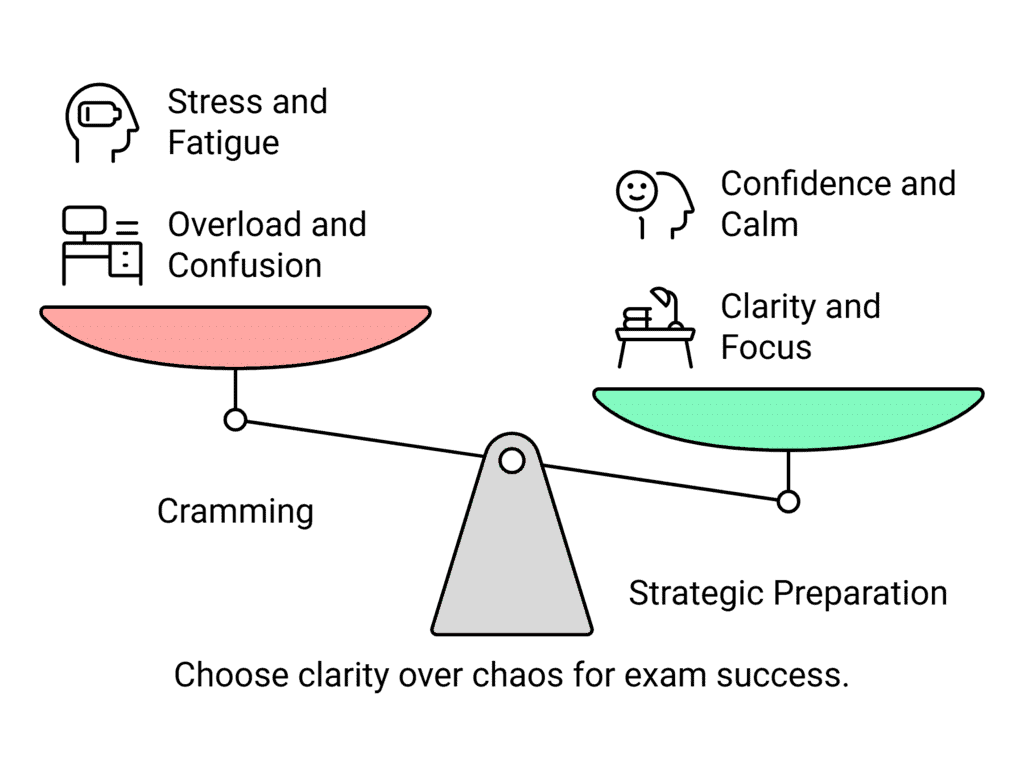
Day Before the Test:
No new topics or intense practice.
Focus on relaxation, confidence, and mental clarity.
If helpful, lightly revise formula sheets or flashcards—but no cramming.
Simulate the Test Day:
Wake up at the same time as on test day.
Follow your test-day routine to sync your body and mind.
On Test Day:
No heavy studying. Your brain needs to be fresh, not overloaded.
If you must, bring short flashcards or calming notes to review during idle time—but keep it minimal.
How to Use Breaks Effectively on GMAT Day
Your brain needs mini-resets during such a long exam. The optional breaks between sections aren’t just pauses—they’re chances to refuel, refresh, and regain focus.
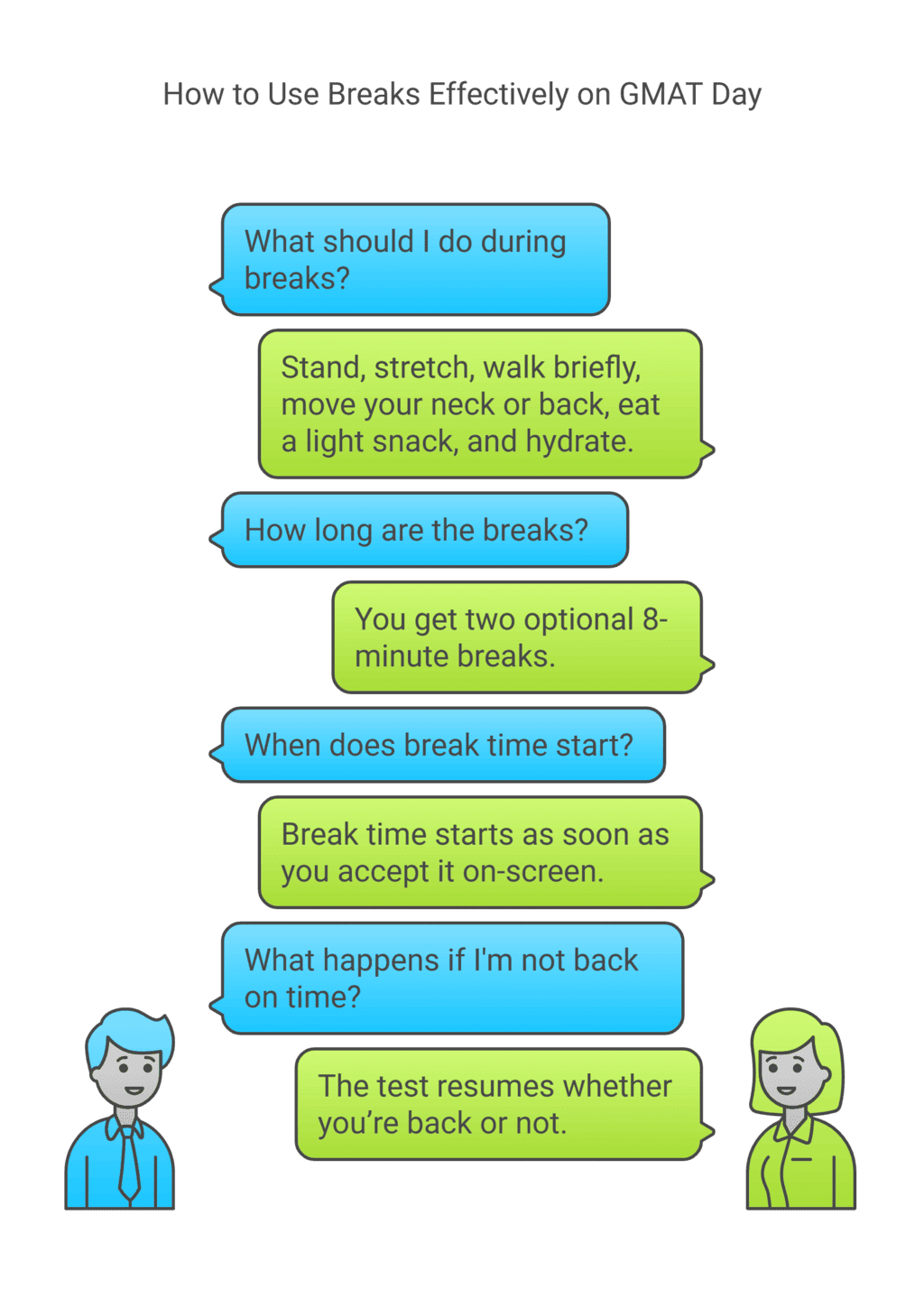
Choosing the Section Order Wisely
Thanks to the GMAT’s flexible section order, you can now begin with the part of the test you’re most confident in. This can help you build early momentum and reduce stress.
GMAT allows you to choose section order. This doesn’t affect your score—use it to your advantage.
Strategy Options:
Start with your strongest section (Quant or Verbal) to build momentum.
Start with AWA/IR if you need a warm-up before hitting heavy logic-based sections.
Tip: Practise your preferred order in mock tests to get used to the flow.
Staying Focused During the Exam
It’s easy to feel distracted or fatigued during a long test like the GMAT. Your ability to stay sharp throughout all sections can make a huge difference in your overall performance.
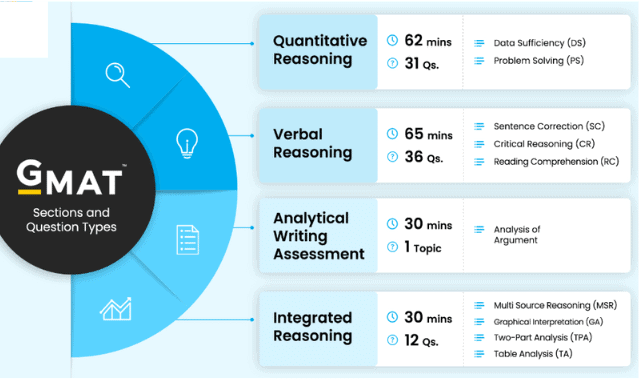
Choose the right time slot based on when you're most productive.
Eliminate distractions:
Ensure your phone is turned off.
Tell friends/family not to disturb you before the exam.
Maintain Energy:
Light exercise before the exam helps with alertness.
Avoid caffeine overload or energy drinks—they may cause crashes.
Don’t panic mid-way:
If a question throws you off, guess and move on. Time management is crucial.
Staying Calm During the Test
Even with the best preparation, test anxiety is common. What matters most is how you respond to difficult questions or unexpected moments.

It's okay to get stuck: Not every question will click instantly.
Stay composed:
Take deep breaths if you feel overwhelmed.
Focus on the current question—not your performance so far.
Use intelligent guessing:
Eliminate wrong options and make an educated guess when needed.
Mark and move on rather than waste too much time.
Don’t let one bad section affect the next:
Each section is independent. Regroup mentally during breaks.
Getting Help During the Exam
If something goes wrong during the test—don’t panic. You have the right to seek help and ensure that the environment is fair and functional.
Pre-Test:
Check that your computer, headphones (if any), chair, and whiteboard/scratchpad are in good condition.
Let the invigilator know before the test starts if there’s an issue.
During the Test:
If you face a technical problem, raise your hand calmly.
Don’t attempt to fix anything yourself—this may be considered suspicious behaviour.
Noise or distraction?
Report it immediately.
Centres often have protocols to help resolve such issues.
Final Thoughts
You’ve done the hard work. Now, your goal on test day is to remain focused, calm, and composed. Trust your preparation, use the tips above to your advantage, and walk in with confidence. The GMAT is not just a test of knowledge—it's a test of strategy, endurance, and mindset. You've got this!
|
2 videos|14 docs
|
FAQs on D-Day Tips and Tricks: GMAT - How to prepare for GMAT
| 1. Should I study or practice on the test day and a day before? |  |
| 2. How can I utilize breaks on the exam day effectively? |  |
| 3. Is there a specific order in which I should attempt the test sections? |  |
| 4. How can I maintain focus throughout the exam? |  |
| 5. What can I do to stay calm and composed during the test? |  |
















